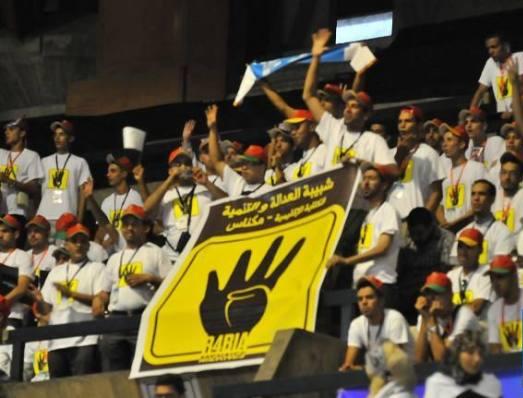
A few years ago, a German appeals court barred a Muslim mother from circumcising her six-year-old son, relying on Germany’s new anti-circumcision law passed in 2012, after harsh criticism from both Jewish and Muslim groups.
The German court said that the mother did not consult with her six year old son before making the decision, as is stipulated in the 2012 law. The ruling was handed out at the end of August 2013.
An even bigger threat to Jewish and Muslim ritual circumcision came from the Council of Europe, which defined the practice of circumcision as a “clear human rights violation.”
These attempts to outlaw circumcision failed; but now new attempts are being made by health officials and politicians in Scandinavia who want to ban non-medical circumcision of boys under 18.
In Scandinavia, home to some of the world’s most secular societies, three parties officially came out in support of a ban on Jewish and Muslim circumcision, including one right-leaning conservative anti-immigration party in Finland and another left-leaning anti-Israel party in Denmark.
As a rabbi, I know that all these governmental attacks on circumcision are just history repeating itself, as it frequently has over the last twenty two centuries since the first Hanukah resistance to the first attempt by a government to forbid circumcision.
The last of the eight days of Hanukah this year falls on December 10, 2018 (Jews follow a lunar-solar calendar). Hanukah, the Festival of Freedom, teaches us the importance of opposing government officials trying to forbid the practice of Jewish and Muslim ritual circumcision.
The first resistance to a government’s attempts to oppress a religious group occurred in 169 BCE when the Greek rulers of the Syrian Empire, decided to prohibit Jews from circumcising their sons, as part of government program to make Jews conform to Greek standards of civilized behavior.
Greek pressure on Jews to ‘fit in’ culturally had some limited success with many wealthy Jews and even some of the upper levels of the priesthood in Jerusalem starting to follow Greek styles and customs.
Then the Greek King ordered that a statue of himself be placed in the courtyard of this led to a revolt which broke out in 168 BCE in the small village of Modin, led by a man called Judah, the Maccabee (hammerer), and his four brothers.
With trust in God, the Maccabee brothers (four of who were killed in battle over the next two decades) defeated the much larger Syrian armies, recaptured Jerusalem and rededicated (Hanukah) the desecrated Temple in an eight day festival.
Hanukah, the Festival of Freedom celebrating the duty to say ‘NO’ to the unjust demands of a dictatorial government, is still celebrated to this day in Jewish homes by reciting blessings, lighting candles, singing songs and retelling the ancient story in various forms.
The oppression of Judaism by Antiochus IV, the Syrian Greek king, was the first known attempt at suppressing a minority religion, but unfortunately not the last. Other well known attempts were the three century long Roman persecution of Christianity, and the terrible persecution of Muhammad and his followers by the majority of pagan Arabs in the city of Makka.
All three religions emerged from their varying periods of persecution stronger than ever, and this is the ongoing spiritual lesson of the Hanukah lamp that once lit by faithful believers, filled with hope and trust in God; lasts longer than anyone else thinks possible.
Why is Hanukah celebrated for eight days. In Biblical days the two most widely celebrated annual Jewish Holy days were the week long pilgrimage festivals of Passover and Sukkot (the fall harvest festival). Each lasted seven days, but Sukkot had an extra day attached at its end thus making it a combined eight day festival.
When Prophet Solomon dedicated the First Temple in Jerusalem during Sukkot; the celebration lasted seven days and on the eighth day the people went back home.
For three years, while the Temple was polluted by the Syrian Greek statue of the king, Jews boycotted the Temple. When the Makabees recaptured Jerusalem and the Temple Mount just eight weeks after the end of Sukkot, they purified the Temple and called it’s eight day (like Solomon) rededication ‘Sukkot in December”.
The next generation preferred the name Hanukah, which means dedication/devotion, and reflects the Jewish ongoing commitment to fight for the rights of all religious minorities to be free to practice their own religion.




